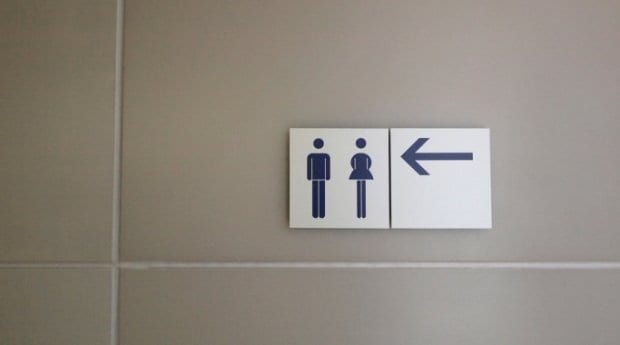An amendment that excludes federal sex-segregated facilities from a bill meant to enshrine gender identity in the Canadian Human Rights Act and the Criminal Code has sparked sharp criticism.
Donald Plett, a Conservative senator who has voiced numerous objections to Bill C-279, which would add gender identity as one of the grounds of discrimination in the Canadian Human Rights Act and the Criminal Code, successfully introduced several amendments to the bill at a meeting of the committee on legal and constitutional affairs on Feb 25.
While some amendments, including those that removed the definition of gender identity from C-279 and ensured it complied with Bill C-13, the cyberbullying bill, carried without protest, the addition of a clause that would exclude federally overseen sex-segregated facilities from the new provisions was protested by Liberal members of the committee.
Those facilities include: correctional facilities; crisis counselling facilities; shelters; washrooms; showers; and changing rooms that can be found in federal buildings, army bases and First Nations reserves.
Plett said that the clause was meant to protect “vulnerable” people. “This will no longer allow biological males to self-identify as female and gain unrestricted access to sex-specific facilities,” he said. “This in no way hinders human rights protection for the transgender community.”
Grant Mitchell, a Liberal member of the committee, responded that he and his colleagues could not support the proposed amendment. “This clause is inherently discriminatory,” he said.
Fellow Liberal Senator Mobina Jaffer added that she had a real problem with the implied assumption in the amendment that trans people are aggressors. However, the amendment passed with six votes — with four against and one senator absent.
Kyle Kirkup, a Trudeau scholar at the University of Toronto’s law school who studies the legal regulation of LGBT people and non-normative sexualities and genders, told Daily Xtra he wasn’t sure that anyone was expecting that Plett would introduce such a specific amendment targeting public washrooms and change rooms. “In essence it gets to the heart of the bill which is to allow people to self-identify as their gender for legal purposes,” he says.
But trans activist Susan Gapka says she wasn’t surprised, describing the whole proceeding as upsetting. “I’m grieving,” she says.
“It’s just an act of violence against the bill. It’s an act of violence against the trans community, and it’s an act of violence against democracy,” Gapka says, adding that the trans community may be better off without a bill, given the new amendments adopted on Feb 25.
The federal NDP also released a statement criticizing what they characterize as the Senate’s attempt to block the bill from passing. “The Senate’s attempt to obstruct this bill that would finally give transgender Canadians the protection and equal status they deserve is reprehensible,” said Randall Garrison, the NDP’s LGBT critic, in the release.
Though the House of Commons passed the bill in March 2013, it has been held in the Senate since then, leading to accusations that it was being stalled by the Conservative party.
Because the amendments passed, C-279 will return to the Senate and eventually the House of Commons to be voted on again. However, if an election is called before C-279 is voted on, it, along with all other in-progress bills, will be discarded.
The next federal election is scheduled for Oct 19, though there has been speculation that it will be called earlier.
Online reaction to the amendments was decidedly negative, with some Twitter users calling for protest against the federal government.
HG Watson can be reached at hg.watson@dailyxtra.com or @hg_watson on Twitter.


 Why you can trust Xtra
Why you can trust Xtra


